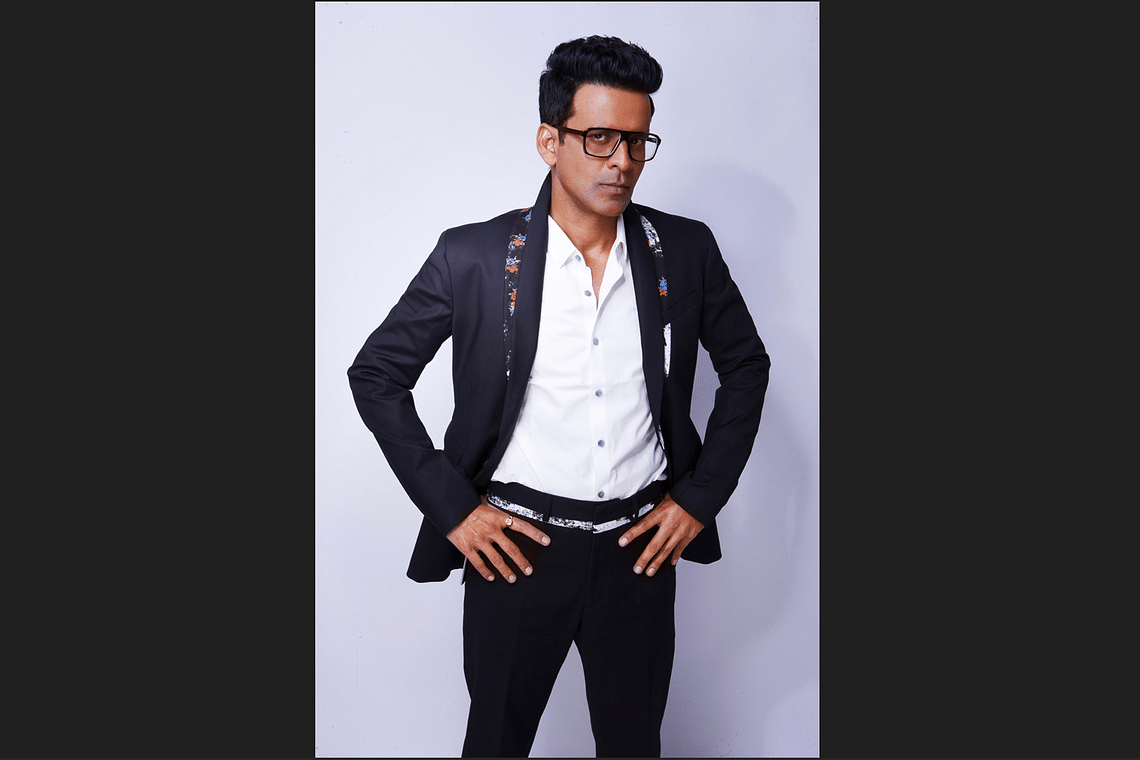


Manoj Bajpayee could easily be one of the richest actors in Bollywood, given the wealth of talent he possesses.
But the 55-year-old has largely eschewed commercial cinema and carved a niche for himself as a method actor famous for unconventional roles.
Last week, he was in Singapore promoting the film The Fable at the Singapore International Film Festival. In the 1980s drama set in North India, he plays Dev, a soft-spoken patriarch grappling with mysterious fires that threaten his tranquil existence.
“I don’t know how I choose my roles, but all I would say is that there is some calling when you are choosing a role,” he told tabla! during an interaction at the Raffles City Convention Centre. “It starts with the script, which has to be good. But sometimes, you are looking for a new experience.
“So, you go with new directors who have very different ideas about life and cinema. I throw myself into their world and come out as an improved human being and actor.”
Young filmmaker Raam Reddy’s The Fable is a haunting tale set in the Himalayan orchards of India in 1989. Peaceful life in the sprawling estate is threatened by a series of incidents, transforming it into a microcosm of larger systematic inequalities.
“When I was offered the film, I was already in a state of mind which is very similar to Dev’s,” said Bajpayee. “It was not Dev who was dealing with the issue, it was Manoj Bajpayee who was dealing with it – because my life was no different from the protagonist that Raam Reddy wanted me to play.
“So I understood Dev, his conflict and the inner battle. The director’s first film (the 2016 Kannada film Thithi) also completely mesmerised me. He is so young, yet he has this amazing ability to tell a gripping story on screen.”
Bajpayee has won critical acclaim for his roles in films such as Satya (1998), Shool (1999), Pinjar (2003), Rajneeti (2010), Gangs Of Wasseypur (2012), Aligarh (2016) and Sonchiriya (2019).
He became a hit after playing a greedy politician in the political thriller Raajneeti. His portrayal of the lead character Sardar Khan in Gangs of Wasseypur, a militant in Chakravyuh (2012), an investigative officer in Special 26 (2013) and Professor Ramchandra Siras in the biographical drama Aligarh further catapulted his fame.
If he had concentrated solely on more “commercial” cinema, he would have been a mutli-millionaire by now – in the mould of Shah Rukh Khan or Akshay Kumar.
“I have never chased stardom,” he said. “What has always fascinated me is that as an actor I should be able to express myself.
“I was always a very quiet, reserved kid. Acting has always given me that sense of freedom to express myself.
“The advantage of being an actor is that you are able to play different human beings, and through them, you are expressing your own self. So I was never into stardom. I was never into too much money and fame and glory.
“I’m myself. I’m very comfortable roaming a mall with nobody noticing me. I’ve always been that kind of a person.”
Born in Belwa, a small village near the city of Bettiah in Bihar’s West Champaran district, Bajpayee aspired to become an actor since childhood.
He relocated to Delhi at 17, and applied to study at the National School of Drama, only to be rejected four times.
But he was persistent, continuing to do theatre while studying in college.
Bajpayee made his feature film debut with a one-minute role in Drohkaal (1994) and a minor role as a dacoit in Shekhar Kapur’s Bandit Queen (1994). After a few unnoticed roles, he played the gangster Bhiku Mhatre in Ram Gopal Varma’s 1998 crime drama Satya, which proved to be a breakthrough.
“You learn the craft of acting through theatre and other workshops,” said Bajpayee. “I’ve done theatre for 10 years in Delhi, and then moved to Mumbai with Bandit Queen. That’s how my journey started, three decades back.
“I’m very much aware that it is difficult for an actor to survive without doing commercial cinema. But I’m very careful of what I do in that genre,” he said.
“I don’t look down upon commercial cinema. It moves and entertains billions of people. So who am I to judge it? It’s just that I feel more comfortable doing artistic cinema, which is exploring the dimension of art in its story.
“The benefit of doing theatre for so long is that you know how to express yourself in all kind of genres. And that is always an advantage for me.”
So, what’s the limit for Bajpayee, or to what extent can he go?
“I don’t know, I have never thought that this is all I can offer.
“Suddenly, one Ram Reddy comes along, and he pushes you. And then, I myself am shocked that he is able to get another dimension out of me.”